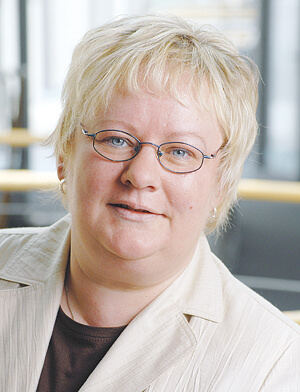WwW - World-wide economy
Digitisation is leading to a profound change in worldwide economic relations as it is a motor for globalisation. Communication and data exchange take place around the clock - 24 hours a day, seven days a week. Arrangements, negotiations, project discussions and team meetings become independent in terms of location and almost of time through video conferencing via the internet; the participants can be located all over the world. The supply chain is becoming international - the process of value creation often starts with raw materials from Africa, runs through the “workshops of the world” in Asia and ends with final assembly and finish in Europe and the USA - and can be managed and controlled in real time via electronic communication. In turn, many companies set up foreign branches or team up with local partners to be closer to the market or enjoy locational advantages.
Nevertheless, many companies are still structured as they were in the “founding days” with corresponding hierarchies and management styles. In these historically evolved organisation, departmental thinking and silo mentality often prevail; there is no overarching customer and process focus, but a narrow product focus. In many cases, foreign branches are not considered independently operating business units with a high level of competence in their market segment, but as subsidiaries bound by instructions. REFA International can help in this aspect with analyses and Counselling to break up and modernise the structures of the organisation, to implement the Lean approach and develop the company into a learning organisation.
The first step: analysis
In order to be able to initiate and implement concrete steps and measures for improving the workflows and processes in the company, you must know the structures and process chains existing in the organisation. A comprehensive systematic analysis is therefore the basic prerequisite for organisational development. REFA International disposes of a rich repertoire of analysis tools to evaluate all processes in the company - whether in the value chain from incoming goods to production to logistics and shipping or in assisting, i.e. indirect, departments such as administration. Classical methods to be mentioned are the Time studies or the Activity sampling as well as Process and potential analyses and personnel requirement assessments.
The structured collection of data is the basis for the subsequent
- Process evaluations,
- Process renewals and
- Restructurings.
The second step: optimisation
The aim of optimisation is to make the best possible use of resources and thus minimise waste (called “muda” in the Lean approach). This aim can be achieved with an “evolutionary” approach by increasing efficiency in a (continuous) improvement process; this ultimately leads to a “learning organisation” as all levels and departments of the company are involved. However, the aim can also be pursued with “revolutionary”, “disruptive” (a more recent term) measures, by increasing effectiveness when introducing new structures and processes. Also in this aspect, REFA International advises and coaches on an international scale on process optimisation and so-called business process reengineering, either directly on site or via video conferences, training courses and webinars.
Effective and efficient processes in all areas of the organisation, whether manufacturing or administration, are the key to the sustainable use of resources and thus to cost savings: Ideally, material consumption, throughput times and even the workload for employees can be reduced. To achieve this, the following measures have priority:
- Design of work tasks and process sections;
- ergonomic design of work systems;
- Process optimisation in value-adding and in assisting departments, also taking into account demographic factors and the regional characteristics of foreign branches;
- Optimisation of the flow organisation.
REFA International: our offer
Transforming existing, historically evolved organisations is difficult. Habitual processes and thought routines, but also reservations about other cultures, must be questioned, examined, adapted and in some cases overcome in order to be able to successfully implement such a reorganisation project. There are many concerns, worries and also fears to overcome here - on the employer and employee side. This requires professionally competent, experienced, psychologically trained and communicatively strong experts.
As an advisory and coaching body with highly qualified experts and large practical experience, REFA International can also offer suitable solutions in an international environment - directly on site, including at foreign branches, or via video conferences, Online training and webinars.




 Bettina Dirks
Bettina Dirks



